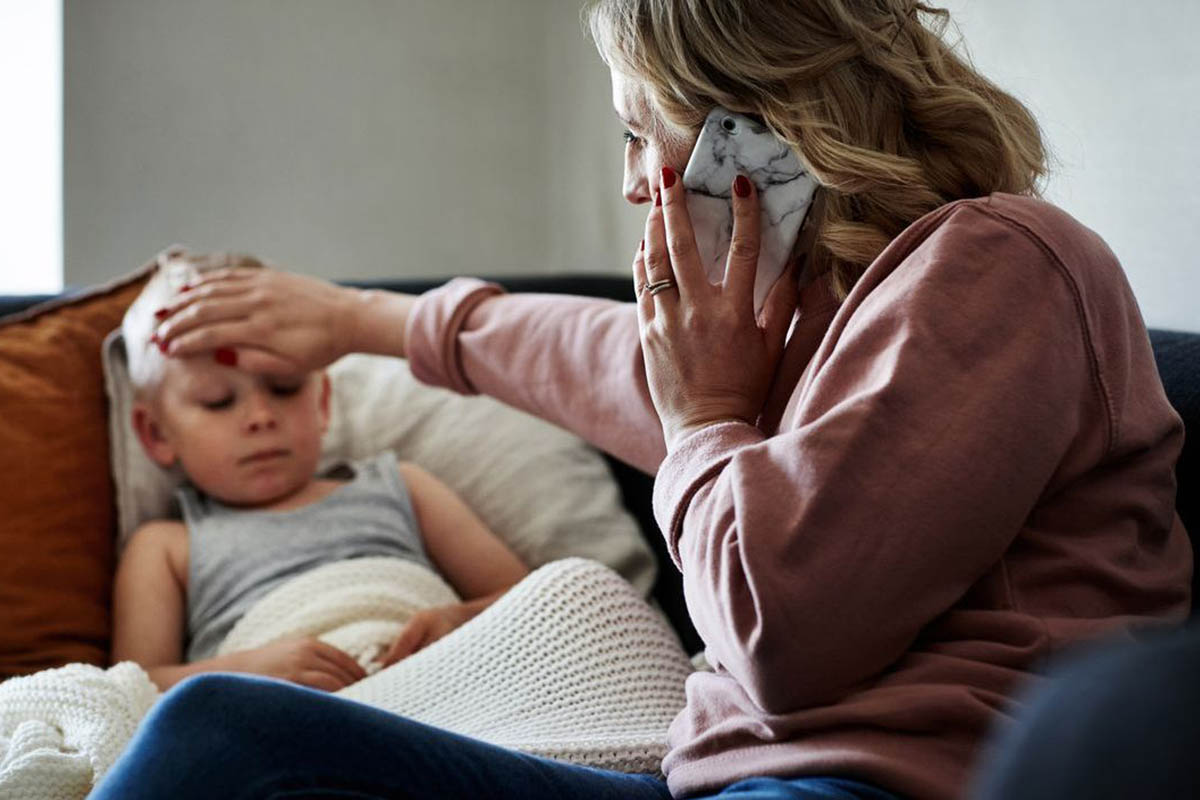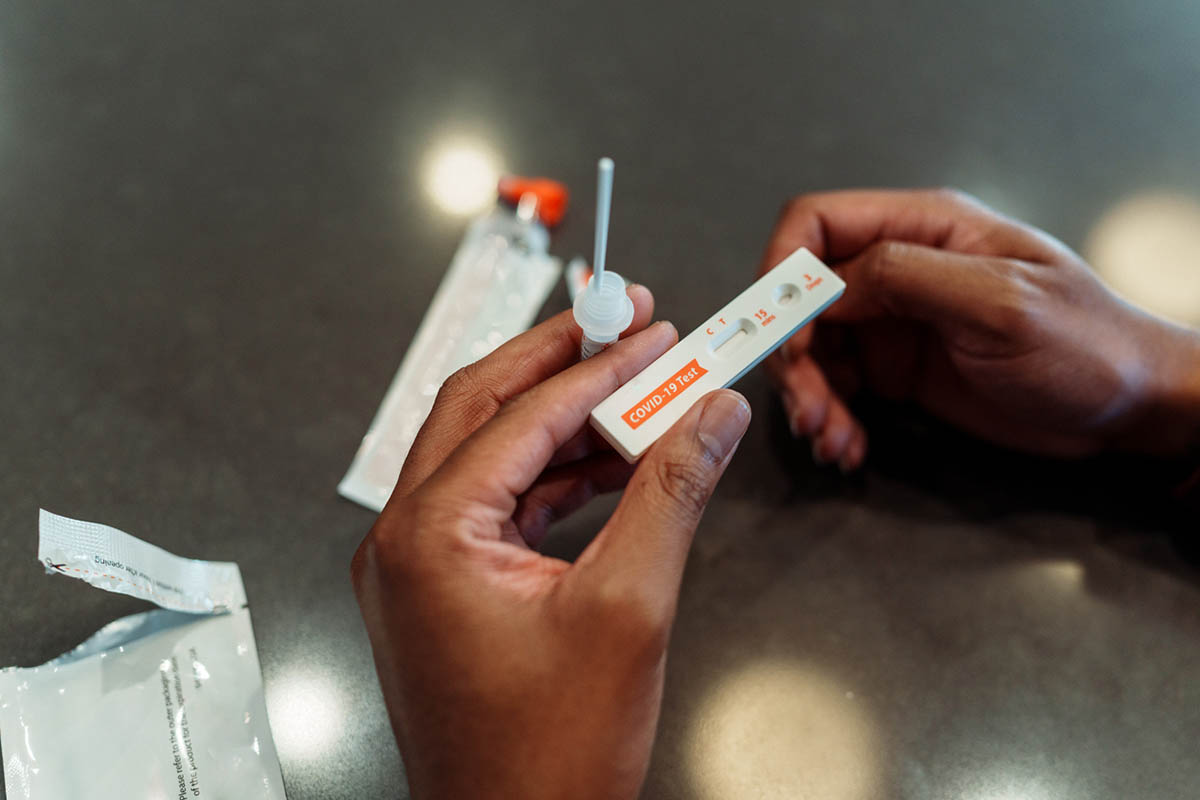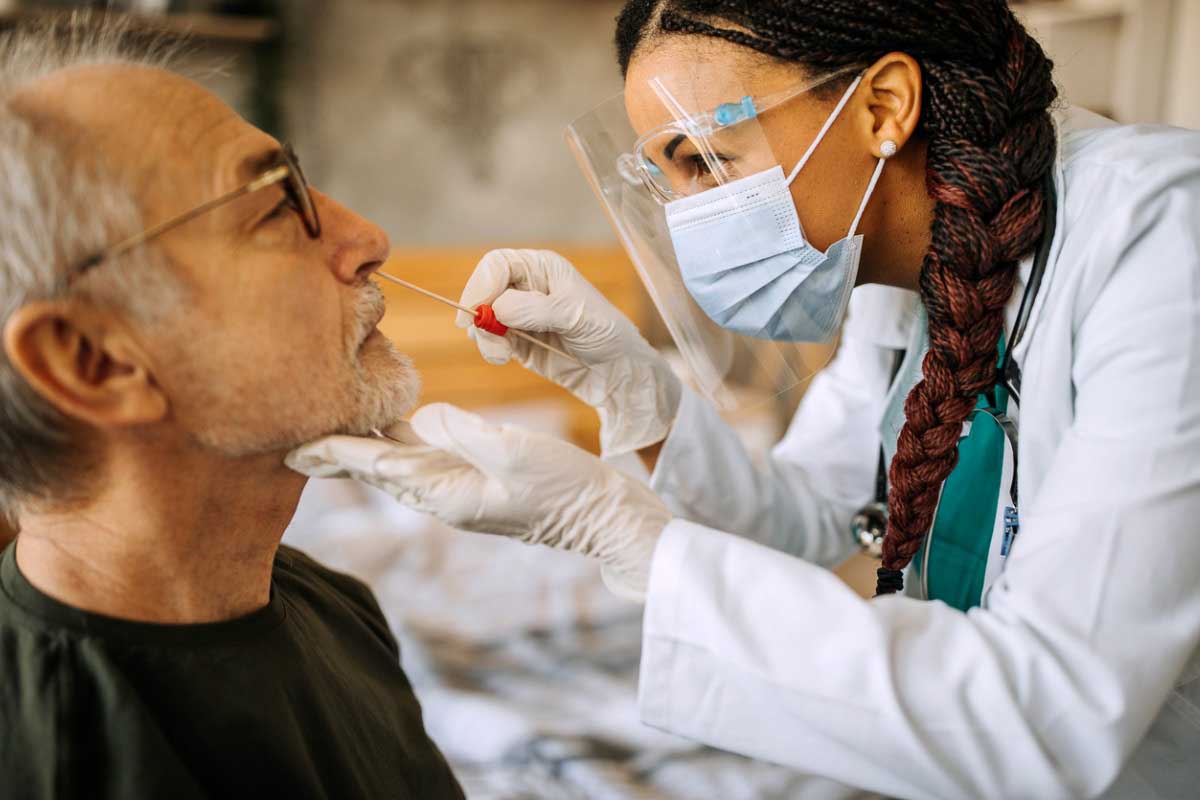
Prim Care Companion CNS Disord 2021;23(4):21cr02984
To cite: Uvais NA. Manic switch in a patient with depression in the setting of COVID-19 treatment. Prim Care Companion CNS Disord. 2021;23(4):21cr02984.
To share: https://doi.org/10.4088/PCC.21cr02984
© Copyright 2021 Physicians Postgraduate Press, Inc.
aDepartment of Psychiatry, Iqraa International Hospital and Research Centre, Calicut, India
*Corresponding author: N. A. Uvais, DPM, Department of Psychiatry, Iqraa International Hospital and Research Centre, Calicut, Kerala, India ([email protected]).
Coronavirus disease 2019 (COVID-19) is a highly infective illness—first observed in Wuhan City, China in late December 2019—caused by severe acute respiratory syndrome coronavirus 2 (SARS-CoV-2).1 Along with severe physical symptoms, patients with COVID-19 infection can also suffer from various neuropsychiatric symptoms that can persist even after they have recovered from the virus.2 However, manic symptoms occurring for the first time were rarely reported among patients with COVID-19 infection.3 Moreover, specific treatments for COVID-19 have also been shown to be associated with various neuropsychiatric symptoms.4 Steroid treatment is an important part of the COVID-19 management protocol, which carries a significant risk of precipitating psychiatric symptoms including mania.5 A recent meta-analysis6 regarding neuropsychiatric symptoms among COVID-19 patients also reported few cases of steroid-induced mania. Here, the case is presented of a middle-aged female depressed patient with COVID-19 infection, who had a manic switch while receiving treatment for COVID-19.
Case Report
A 45-year-old woman presented to the hospital emergency department in late November 2020 with complaints of breathing difficulty of 1 week duration. While taking her past history, it was learned that she was diagnosed with COVID-19 pneumonia recently and received inpatient care with bilevel positive airway pressure and oxygen therapy. Two weeks later, she tested negative on the rapid antigen test for COVID-19. On examination, she was conscious, afebrile, and tachypnic. Her pulse rate was 122/min, blood pressure was 130/80 mm Hg, and temperature was 98.6°F. Clinical examination revealed no other positive findings. Routine blood evaluation showed an elevated D-dimer level (2,763.52 ng/mL). Echocardiography was within normal limits. Computed tomography of the chest showed partial filling defects in the distal left pulmonary artery extending to the upper lobe and interlobar branches, as well as suspicious partial filling defect within the left posterior segmental, right apical and anterior segmental branches suggestive of pulmonary embolism. She was treated with injection low molecular weight heparin for 5 days.
Meanwhile, a formal psychiatric evaluation was requested by the treating pulmonologist, as she was taking psychotropic medications prescribed by a local psychiatrist. Her psychiatric history revealed that she had been experiencing psychiatric symptoms for the last 4 months characterized by reduced interaction, low mood, reduced interest, anhedonia, and impaired biological functioning. She was diagnosed with a severe depressive episode by a local psychiatrist and was treated with oral quetiapine. During the period of treatment for depression, she tested positive for COVID-19 and was transferred to a designated COVID-19 treatment facility in the district. Quetiapine was stopped during her hospital stay, and she received oral steroids for COVID-19 pneumonia. Soon after discharge, her family noticed significant changes in her behavior. She became overtalkative, made tall claims, and became irritable with others. Her energy level significantly increased, and her sleep significantly decreased. The family had consulted the local psychiatrist, who made the diagnosis of bipolar affective disorder, current episode mania with psychotic symptoms and prescribed sodium valproate 1,000 mg/d, risperidone 8 mg/d, and lorazepam 8 mg/d. She had a family history of bipolar affective disorder in a maternal aunt.
Her mental state was better at the time of admission to our hospital. Her affect was anxious. She was diagnosed with a severe depressive episode with steroid-induced mania, and a differential diagnosis of bipolar affective disorder was also kept. Her medications were decreased considering her medical condition: risperidone was reduced to 2 mg/d and lorazepam to 3 mg/d. She was euthymic at the time of discharge on hospital day 5. Her last follow-up was in June 2021, at which time she was euthymic and taking sodium valproate 700 mg/d and risperidone 1 mg/d.
Discussion
This case report highlights the potential of COVID-19 infection and its treatment in the causation of a manic switch in a patient with depression. To the best of my knowledge, this is the first case report of a manic switch probably due to steroids in a patient with depression in the setting of COVID-19 treatment. Steroid-induced manic symptoms were already reported in the literature.6,7 There are few reports of manic symptoms among patients with COVID-19 treated with steroids.8 Studies4 have reported that short-course high-dose corticosteroid treatment, as occurs in COVID-19, has the potential to cause significant changes in mood, mainly manic symptoms. Moreover, higher rates of steroid-induced manic symptoms were usually associated with a positive personal or family history of psychiatric disorders, as in our patient.5
There are other potential causes for the manic switch in our patient. COVID-19–related stress, especially from receiving treatment in the hospital in the absence of family, could be an important stressor. Neurotropism for the virus could be another potential causative factor. It has been demonstrated that SARS-CoV-2 has the potential to enter the nervous system directly by affecting the olfactory bulbs that significantly express the angiotensin-converting enzyme 2 receptors.1 However, there is no validated cerebrospinal fluid polymerase chain reaction assay to diagnose SARS-CoV-2–associated encephalitis. Another possible causative factor could be the effects of immunologic response associated with SARS-CoV-2 infection on the nervous system. Research9 has shown the link between elevated levels of inflammatory markers and the onset of mania.
In conclusion, neuropsychiatric symptoms associated with COVID-19 are multifactorial in origin. However, steroid treatment, which is an important therapeutic agent in the management of COVID-19, can be a specific cause for the induction of mania among COVID-19 patients with depression. This case highlights the need for cautious use of steroids among COVID-19 patients with personal or family history of psychiatric illness.
Published online: July 1, 2021.
Potential conflicts of interest: None.
Funding/support: None.
Patient consent: Consent was received from the patient to publish the case report, and information and dates have been de-identified to protect anonymity.
References (9)

- Lim ST, Janaway B, Costello H, et al. Persistent psychotic symptoms following COVID-19 infection. BJPsych Open. 2020;6(5):e105. PubMed CrossRef
- Cai X, Hu X, Ekumi IO, et al. Psychological distress and its correlates among COVID-19 survivors during early convalescence across age groups. Am J Geriatr Psychiatry. 2020;28(10):1030–1039. PubMed CrossRef
- Iqbal Y, Al Abdulla MA, Albrahim S, et al. Psychiatric presentation of patients with acute SARS-CoV-2 infection: a retrospective review of 50 consecutive patients seen by a consultation-liaison psychiatry team. BJPsych Open. 2020;6(5):e109. PubMed CrossRef
- García CAC, Sánchez EBA, Huerta DH, et al. Covid-19 treatment-induced neuropsychiatric adverse effects. Gen Hosp Psychiatry. 2020;67:163–164. PubMed CrossRef
- Salvadore G, Quiroz JA, Machado-Vieira R, et al. The neurobiology of the switch process in bipolar disorder: a review. J Clin Psychiatry. 2010;71(11):1488–1501. PubMed CrossRef
- Grover S, Sahoo S, Dogra S, et al. Steroid induced mania in an elderly patient. J Geriatr Ment Health. 2014;1:115–117.
- Gable M, Depry D. Sustained corticosteroid- induced mania and psychosis despite cessation: a case study and brief literature review. Int J Psychiatry Med. 2015;50(4):398–404. PubMed
- Rogers JP, Chesney E, Oliver D, et al. Psychiatric and neuropsychiatric presentations associated with severe coronavirus infections: a systematic review and meta-analysis with comparison to the COVID-19 pandemic. Lancet Psychiatry. 2020;7(7):611–627. PubMed CrossRef
- Becking K, Boschloo L, Vogelzangs N, et al. The association between immune activation and manic symptoms in patients with a depressive disorder. Transl Psychiatry. 2013;3(10):e314. PubMed CrossRef
Enjoy this premium PDF as part of your membership benefits!





